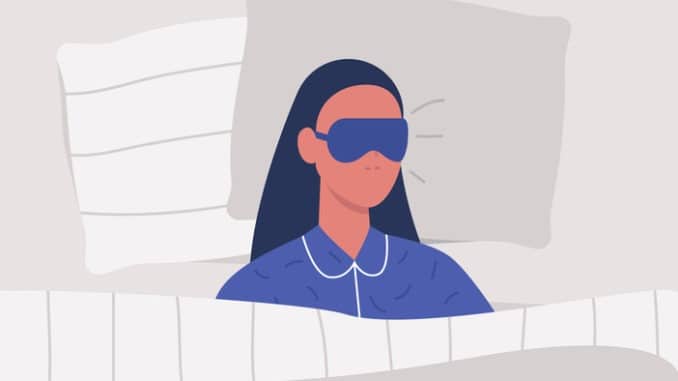
If sleep constantly evades you, it could be time to address your sleep hygiene
CREDIT: This is an edited version of an article that originally appeared on Happiful
Do you find you often answer ‘How are you?’ with ‘I feel exhausted’? You wouldn’t be alone, but the good news is there is something you can do to address this energy imbalance.
Sleep hygiene is about building a suitable environment, and healthy habits, for restorative sleep; it’s highly beneficial to your mental and physical health, cognitive functioning and overall quality of life. It also sets the tone for our circadian rhythm – known as the body-clock or sleep-wake cycle – which is a 24-hour, natural process, that’s highly dependent on the clues your sleep hygiene sends to signal it’s bedtime.
With help from sleep behaviourist James Wilson, AKA The Sleep Geek, we share five steps to better sleep hygiene.
Use natural light to set your body clock
As James explains, light plays an important role in sleep, and you can use it to your advantage. “Getting light exposure early in the morning helps to reset the body’s rhythm, as the light clearly says to the body, ‘Now is the time to be awake.’ This, in turn, helps it feel sleepy at the same time every day. A light box can be a useful substitute if the weather does not allow us to get out into the great outdoors as much.”
Additionally, embrace the darkness. Two hours before bed, dim the lights. Your circadian rhythm is at its most sensitive at this time, and informs your brain that it’s time to wind down.
Set the temperature
The ideal room temperature for sleep is 18°C, and a bedroom that is too warm or too cold could be disturbing your circadian rhythm, as the body naturally expects a dip in temperature at night-time.
Aside from room temperature, James says it’s important to address the temperature between the sheets, which can also impact sleep quality. He recommends avoiding foam mattresses, and opting for natural materials for bedding, such as alpaca fleece, wool, silk and bamboo.
Alpaca wool is particularly effective; due to its hollow nature it has the ability to keep you cool in the summer and warm in the winter. Other natural fibres, like cotton and linen, can also help regulate sleep, as they have sweat-wicking properties.
Use your bed for two purposes only
Do you pull your laptop into bed, or reach for your ‘phone when you’ve barely opened your eyes? These unhealthy habits can actually affect both your quality of sleep, and your relationship.
If you can, limit your bedroom activities to sleep and sex. When you associate your bed with sleeping, or spending time under the sheets with your partner (or yourself), you’ll establish a clear mental association between your bed and sleep. Your brain will slowly start to register that when you climb into bed, it only means one of two things.
Limit your lie-ins
As tough as this may sound, elongated lie-ins can be detrimental to sleep quality. The body prepares itself to wake up approximately an hour before you open your eyes so, if you often lie-in for hours at the weekend, it can disrupt your circadian rhythm.
If you do want to stay in bed for an extra hour now and then, find a snuggly position, but try to stay awake, and don’t exceed an hour.
Wash away the day
Switching up your shower routine so that you enjoy a cleansing wash an hour or so before bed can have a number of different impacts on the quality of your sleep. The physical act of cleaning yourself can symbolise washing away the day, cleansing both your body and mind. You could even add essential oils to the mix; lavender, jasmine, and bergamot are known to induce feelings of calm. After a warm wash, body temperature tends to drop – which, again, helps prepare the body to expect sleep.


Be the first to comment